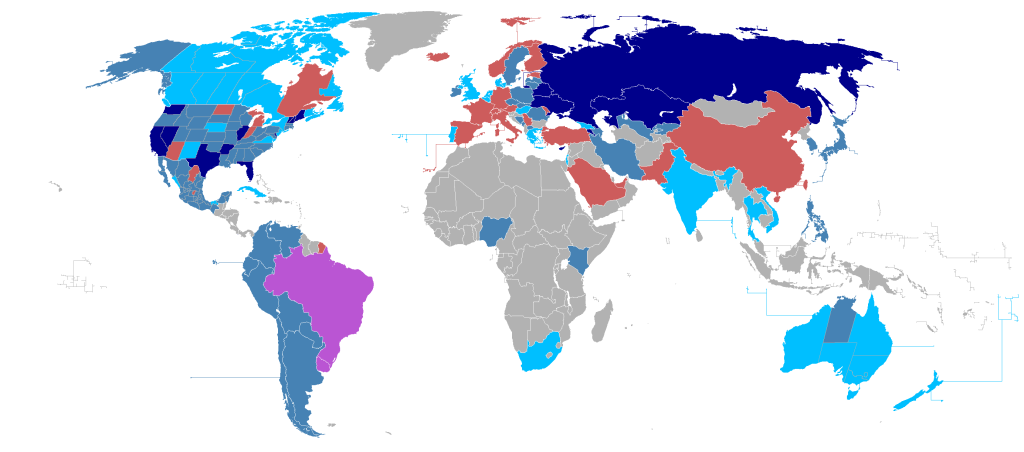Surrogacy is permitted in Georgia allowing both heterosexual and same-sex couples to engage in surrogacy agreements. Although there are no surrogacy laws in Georgia professionals have established procedures for intended parents and surrogates ensuring a safe process.
The legal system in Georgia generally supports surrogacy making it a secure and viable option for those looking to build their families.

In Cyprus surrogacy is legally recognized, protecting both intended parents and surrogates under the Application of Medically Assisted Reproduction Law. Certain conditions must be met by couples in pursuing surrogacy, such as reasons preventing natural conception or the need to prevent serious illnesses from being passed on to the child.
Mexico permits compensated surrogacy for types of intended parents, including individuals singles, LGBTQ+ couples and foreigners. A 2021 Supreme Court ruling legalized surrogacy for all intended parents in Mexico by overturning restrictions.
Due to its options and strong legal safeguards, Mexico has emerged as a destination for infertility treatments.
International intended parents are prohibited from engaging in surrogacy arrangements in Thailand.
Married heterosexual Thai couples are allowed to pursue surrogacy, within the country. Individuals and couples regardless of their orientation are not permitted to engage in surrogacy, in Thailand if they’re Thai citizens. The “Baby Gammy” case that occurred in 2014 resulted in restrictions being imposed on surrogacy practices in the country.
In Slovakia, the act of surrogacy is prohibited as there is no framework supporting it making the practice illegal. It’s crucial to understand that laws concerning surrogacy differ greatly across countries; hence seeking guidance and collaborating with experienced professionals are essential steps when contemplating surrogacy. Each nation has its set of rules and requirements underscoring the significance of research and consultations for a successful surrogacy journey.

Meanwhile, Argentina stands out as a country where surrogacy is legal for both same-sex couples. The nation has put in place legislation to regulate surrogacy arrangements ensuring a regulated environment for all parties involved – intended parents and surrogate mothers alike. This commitment to regulation promotes transparency. Protects within the realm of surrogacy.
Moving on to Kenya this African nation permits surrogacy without laws or regulations governing the practice. Intended parents, irrespective of their orientation have the opportunity to explore surrogacy options within Kenya’s boundaries. Legal custody of the child is typically acquired through a court application process.
In contrast to some countries with bans or restrictions on surrogacy like Thailand and Slovakia the United States features varying laws regarding this reproductive method, at different state levels. Surrogacy is permitted in states with variations, in areas like surrogacy agreements, pre-birth arrangements and the naming of birth certificates.
In Albania there are no regulations concerning surrogacy; however, it has emerged as a choice for prospective parents. While Albanian laws do not address surrogacy directly certain IVF clinics offer surrogacy services. Typically, the process involves procedures conducted locally with mothers travelling from neighbouring countries such as Georgia or Ukraine.
Surrogacy is lawful in India. Open to couples, unmarried partners, single women and individuals from other countries. The legal structure permits both compensated (and surrogacy arrangements. India has become a favoured destination for surrogacy due to its pricing and advanced medical facilities.
www.surrogateworld.com – © 2024, African Fertility Agency Limited . All Rights Reserved.